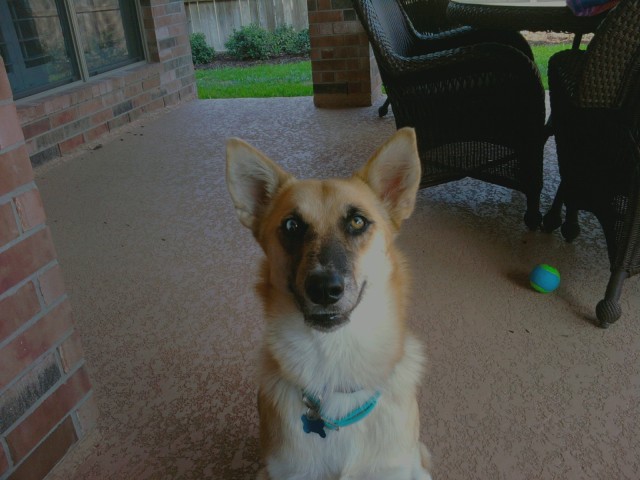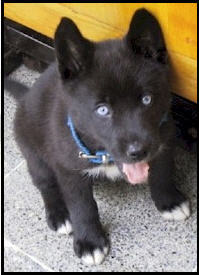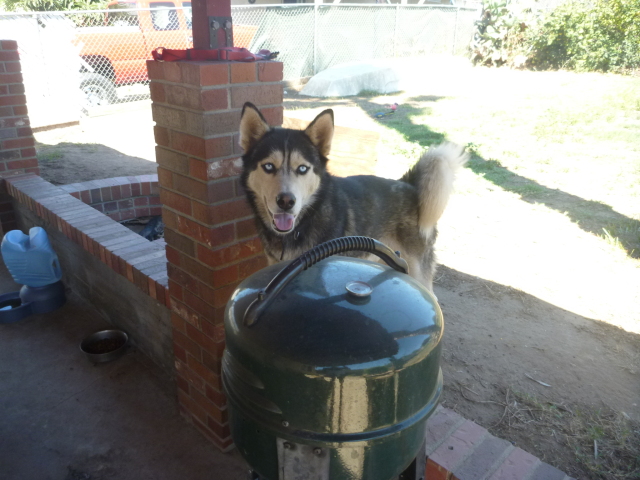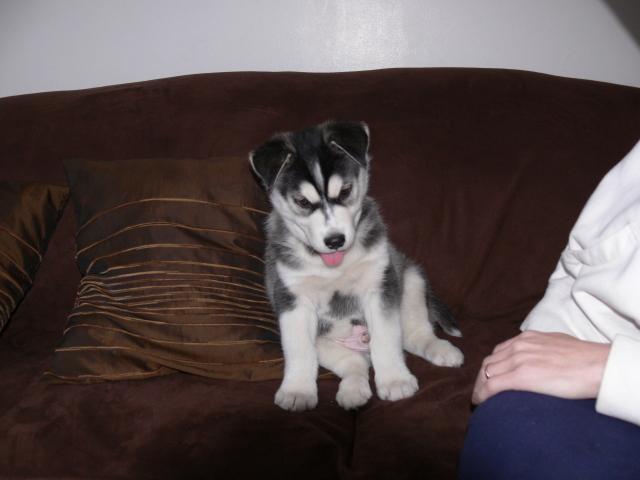QuestionHello. My husband and I just adopted a stray female husky that we believe is about a year old. I can tell she has been trained before because has not had an accident in the house, sits well, and is generally a mild mannered dog, but she was likely abused because cowers when you go to pet her.
The problem occurs whenever we leave her alone. The first time was only for a few hours and I left her free in the house because she had been so good when we were with her and she destroyed several of the blinds in the house and the weather stripping on the doors. Obviously she was trying to get out of the house, but couldn't find a way. The next day she did the same thing, but also tore up carpet by our bedroom door that I had closed to keep her out. The next day we got a wire crate but unfortunately didn't spend much time acclimating her to it and she broke out of it in the 4 hours she was at home by herself. We then got a stronger crate and spent time giving her treats in there and she slept in it for one night before we locked her in, but then she started freaking out again as soon as she realized I was leaving her alone. She is fine whenever either my husband or I are at home, but obviously has been abandoned before and I'm not sure how to let her know that I am not going to do that but cannot be with her 24/7.
Any advice you have would be much appreciated. Thank you.
AnswerSeparation anxiety is the toughest thing to deal with. Your best bets are:
1) Lots of treats, attention, play time, etc. when you are around.
2) Short trips away from her. It can even be as simple as putting her in the crate, leaving the room, and then coming back. Then expand it to include leaving the house, and walking right back in. Then down the street, etc. Each time, it should be a calm moment when you leave, and calm when you arrive, but positive in both cases (treats can help here).
3) Lots of exercise. Tired dogs are more likely to be thankful of their down time in a crate and sleep while you are gone.
4) Getting a "companion" dog can help.
5) Drugs - my least favorite option, but some dogs need a calming agent, and many of these can be taken for a while to deal with the issue, and then, as the dog gets older and more acclimated to things, be taken of the drug. Some are narcotic, some are herbal based - talk with your vet if need be.
6) Last thing, routines! The more you stick to a routine, the more trust the dog will have in the way things happen and be less concerned about you leaving.
Unfortunately, there is no immediate fix, but hopefully these are some ideas to get you started. Also, chew toys that your dog likes can be a good thing as well (long term distractions).

 My 4 mo. old puppy
Question
Arkkan 4mo.old
I recently brought home my Sibe
My 4 mo. old puppy
Question
Arkkan 4mo.old
I recently brought home my Sibe
 Wondering if my rescued husky mix is not a mix
Question
Ace
I adopted a 7 month old rescue abou
Wondering if my rescued husky mix is not a mix
Question
Ace
I adopted a 7 month old rescue abou
 Crate Training a 7wk old Husky mix pup
QuestionHusky look-alike from
QUESTION: Weve re
Crate Training a 7wk old Husky mix pup
QuestionHusky look-alike from
QUESTION: Weve re
 My husky and other dogs.
Question
Kona
My siberian husky, Kona, is 2years old an
My husky and other dogs.
Question
Kona
My siberian husky, Kona, is 2years old an
 Husky Puppy Weight
Question
Zeus The Puppy
Hi we got Zeus at 6 1/2 weeks o
Husky Puppy Weight
Question
Zeus The Puppy
Hi we got Zeus at 6 1/2 weeks o